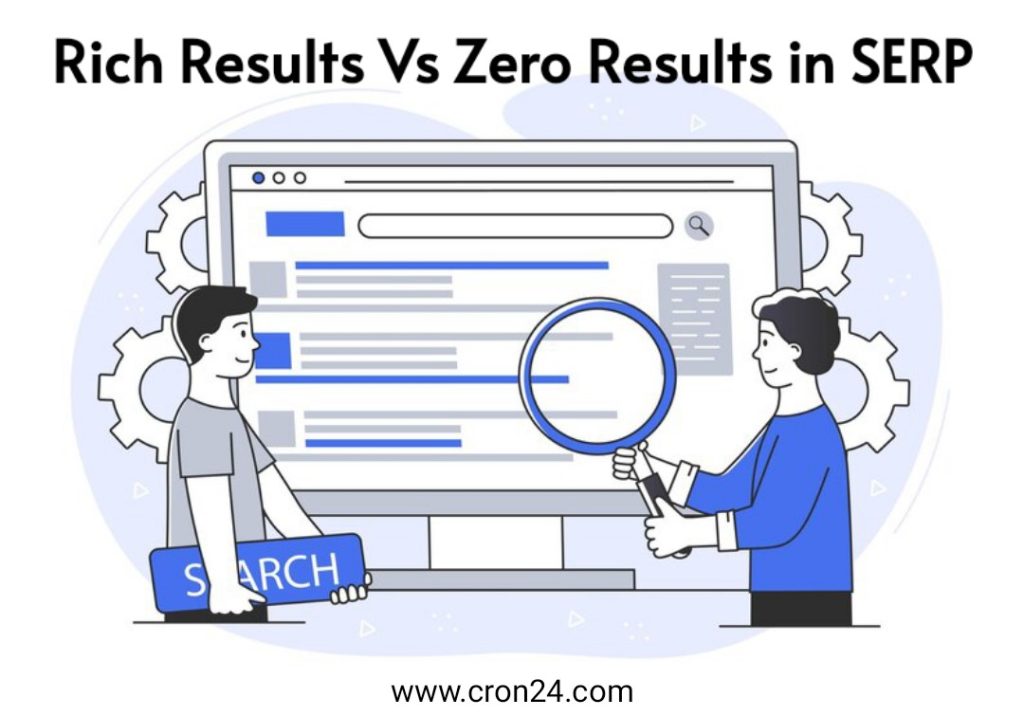Understanding Rich Results And Zero Results In Search Engine Results Pages
Travel

In the dynamic ocean of search engine optimization (SEO), staying informed about the latest search engine results page (SERP) features and formats is essential. Two prominent terms that have gained traction in recent years are "rich results" and "zero results."
In this blog, we will delve into what these terms mean, provide real-life examples, explore how they work, highlight the key differences between them, and draw conclusions on their impact on SEO and user experience.
Rich Results: Adding Depth to Search
Definition of Rich Results:
Rich results are enhanced search results that provide additional information and visual elements beyond the traditional blue link and text snippet. These elements aim to make search results more informative and appealing to users.
Examples of Rich Results:
- Review Stars in Local Business Listings:
- When you search for a local restaurant or business, Google may display review stars along with the name and address, giving users a quick overview of the establishment's reputation.
- When you search for a local restaurant or business, Google may display review stars along with the name and address, giving users a quick overview of the establishment's reputation.
- Recipe Cards with Images:
- Searching for a recipe often yields rich results that include images, cooking time, and ratings, making it easier for users to choose a recipe.
- Searching for a recipe often yields rich results that include images, cooking time, and ratings, making it easier for users to choose a recipe.
- Product Listings in E-Commerce:
- E-commerce searches frequently feature rich results that show product images, prices, and availability, allowing users to compare products at a glance.
How Rich Results Work:
Rich results are generated using structured data markup, commonly in Schema.org format. Website owners add this structured data to their pages to help search engines understand and display content in a more appealing way. Search engines use this markup to extract and present relevant information, such as images, ratings, and prices, directly in the search results.
Zero Results: Streamlining Search
Definition of Zero Results:
Zero results occur when a search query doesn't yield any traditional organic search results. Instead, search engines provide direct answers to user queries, eliminating the need for users to click on search results.
Examples of Zero Results:
- Currency Conversion:
- When users search for "USD to EUR conversion," search engines directly display the conversion rate at the top of the results page.
- When users search for "USD to EUR conversion," search engines directly display the conversion rate at the top of the results page.
- Time and Date Queries:
- Queries like "current time in New York" or "date of Independence Day" yield zero results, with the answers prominently displayed.
- Queries like "current time in New York" or "date of Independence Day" yield zero results, with the answers prominently displayed.
- Unit Conversions:
- Queries like "miles to kilometers" provide direct conversion results without showing traditional search results.
How Zero Results Work:
Zero results are generated through algorithms that identify certain types of queries as information-centric, meaning they seek a specific piece of data or answer. When a query is recognized as such, the search engine aims to provide the answer directly in the SERP, simplifying the user experience.
Key Differences Between Rich Results and Zero Results:
- Content: Rich results enhance traditional search results with supplementary information and visuals, while zero results replace traditional search results with direct answers.
- Generation: Rich results require website owners to implement structured data markup, whereas zero results rely on search engine algorithms to recognize and respond to information-centric queries.
Letz Wrapping up: (Enhancing User Experience)
In SEO, understanding rich results and zero results is crucial for website owners and digital marketers. Rich results can improve click-through rates and user engagement by making search results more appealing and informative.
Conversely, zero results streamline the user experience for specific information-centric queries, reducing the need for users to click through to websites.
As search engines continue to refine their algorithms and SERP features, staying informed about these developments will be essential for optimizing websites and providing users with the best possible search experience.
Embracing structured data for rich results and recognizing when zero results are applicable can help webmasters and SEO professionals adapt to the changing digital landscape.
Thank you for your time.

